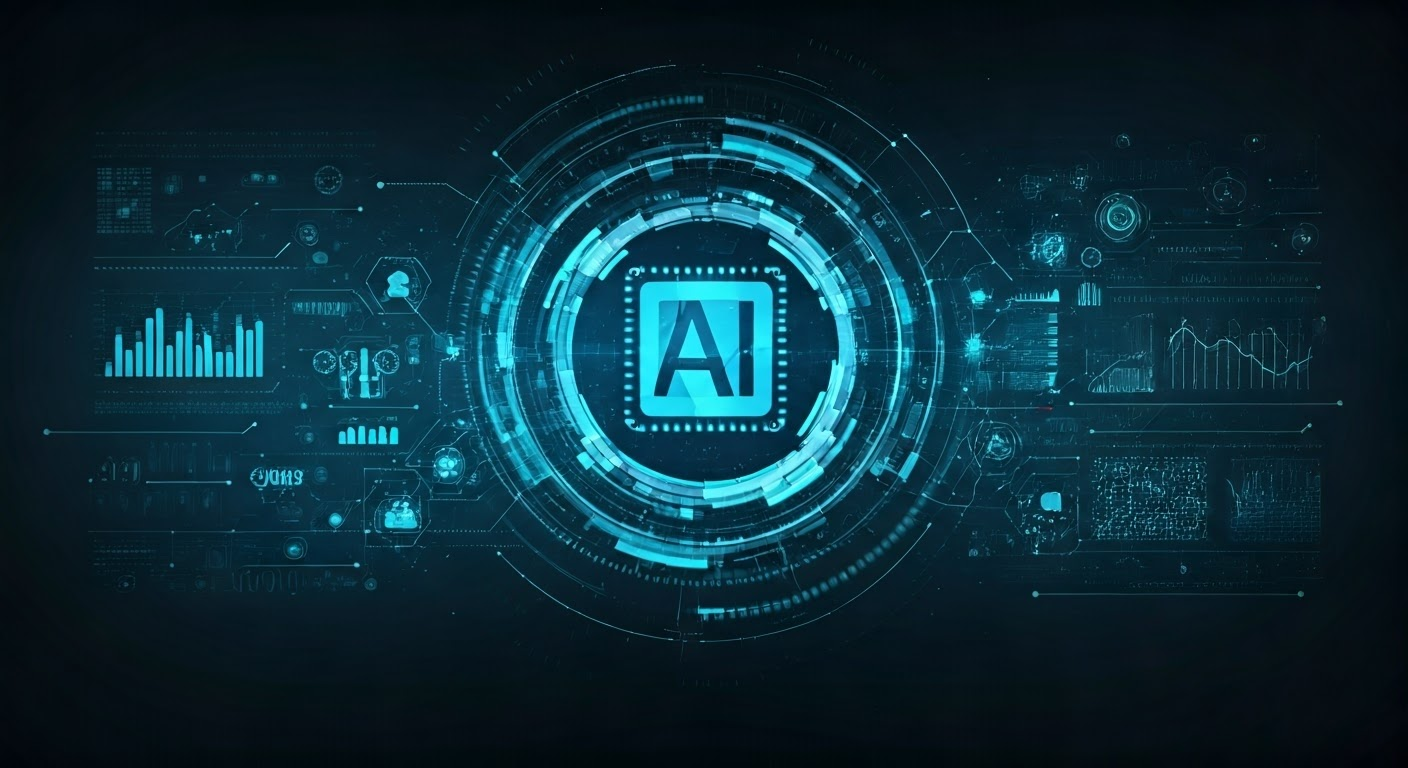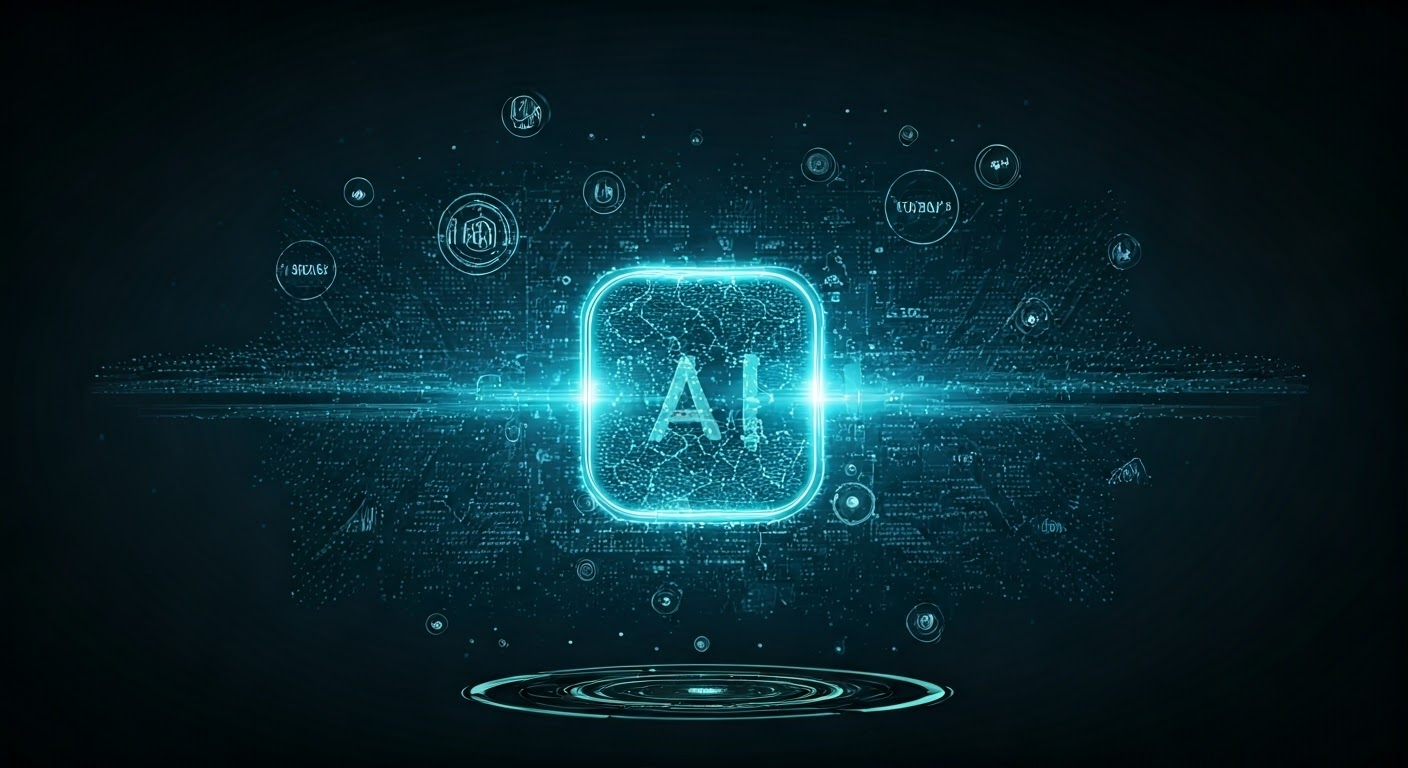April 5, 2025
Mastering AI in Marketing and Advertising Strategies

Greg Kopyltsov
Founder
No items found.


In today's rapidly changing digital market, businesses are constantly seeking innovative marketing strategies to increase customer engagement and drive growth. AI technology has emerged as a transformative force, offering many possibilities for marketers to optimize their campaigns and enhance customer experiences. This blog explores the multifaceted world of AI in marketing, covering its applications, benefits, and challenges.

Simply put, AI in marketing uses technology to make marketers' jobs easier and more effective. Imagine analyzing massive amounts of customer data to understand their behavior and preferences - that's something AI excels at. By identifying patterns and generating insights, AI helps businesses tailor their marketing campaigns for better engagement.
AI's role extends beyond just data analysis. It empowers marketers to automate repetitive tasks, personalize customer interactions, and create dynamic content that resonates with individual preferences. From chatbots providing instant customer support to algorithms delivering personalized recommendations, AI transforms how businesses connect with their audience.
The journey of AI in marketing began with machine learning, allowing computers to learn from data and improve their performance over time. This paved the way for more sophisticated techniques like deep learning, which utilizes artificial neural networks to understand complex patterns and make more accurate predictions.
The emergence of generative ai has further revolutionized the marketing landscape. It has enabled marketers to automate content creation, generate personalized messages, and even create realistic images and videos. This has significantly reduced the time and resources required for content marketing, freeing up marketers to focus on strategic initiatives.
Today, AI is no longer a futuristic concept but an integral part of many marketing strategies. Businesses across industries leverage the power of AI to gain a competitive edge, enhance their marketing ROI, and deliver exceptional customer experiences.
Integrating AI into marketing efforts brings numerous benefits, including enhanced operational efficiency, improved conversion rates, and more profound customer insights. AI-powered automation tools can streamline repetitive tasks such as email marketing, social media posting, and lead nurturing, thereby freeing up marketers to focus on strategic initiatives.
Moreover, AI enables businesses to personalize customer interactions at an individual level. By analyzing vast amounts of customer data, AI algorithms can identify patterns and predict future behavior, allowing marketers to tailor their messaging and offers to individual preferences. This personalization leads to higher engagement, increased conversion rates, and improved customer satisfaction.
Furthermore, AI empowers marketers with actionable customer insights derived from real-time data analysis. This data-driven decision-making enables businesses to optimize their marketing campaigns, identify new opportunities, and stay ahead of the competition.
The world of AI is constantly evolving; staying ahead of the curve means understanding the technologies shaping marketing today. From analyzing vast customer data sets to powering chatbots, AI technologies are revolutionizing how businesses connect with their audiences.
We'll explore key AI technologies, such as machine learning and natural language processing, and how they are being employed to create more effective marketing strategies.
Machine learning, a cornerstone of AI, empowers marketers to extract meaningful insights from big data. Through algorithms that learn from data patterns, machine learning enables predictive analytics, forecasting future trends and customer behavior. This predictive power allows marketers to anticipate customer needs, optimize pricing strategies, and personalize campaigns for better engagement.
Imagine predicting which customers are likely to make a purchase, identifying those at risk of churning, or forecasting the success of a marketing campaign before launch - these are just a few examples of how machine learning transforms marketing. By leveraging historical data, machine learning algorithms can accurately anticipate future outcomes, empowering businesses to make informed decisions and optimize their marketing ROI.
However, it's important to remember that the accuracy of predictive analytics depends heavily on the quality and quantity of data used for training the algorithms. Businesses must ensure they use clean, relevant data to maximize the effectiveness of their machine learning models.
Natural language processing (NLP) focuses on enabling computers to understand and process human language, revolutionizing customer interactions. NLP powers chatbots, virtual assistants, and other conversational AI tools, enabling businesses to provide 24/7 customer support, automate responses to frequently asked questions, and offer personalized assistance throughout the customer journey.
Sentiment analysis, a key application of NLP, analyzes textual data to determine the emotional tone and opinions expressed by customers. By understanding customer sentiment, businesses can gain valuable insights into their brand perception, product satisfaction, and overall customer experience.
NLP empowers businesses to gain a deeper understanding of their customers' needs, preferences, and pain points through analyzing language patterns and extracting meaning from text. This enables marketers to personalize communication, tailor content, and create more relevant marketing campaigns.
The use of AI in marketing extends far beyond theoretical concepts; its practical applications are transforming how businesses interact with customers and optimize their campaigns. From personalized recommendations to AI-driven content creation, the possibilities are vast and constantly evolving.
Let's explore some examples of how AI is being practically implemented across various marketing domains.
AI empowers businesses to elevate customer experience to unprecedented levels of personalization. Gone are the days of generic marketing blasts; AI enables marketers to tailor their messaging and offers to individual customer preferences. By leveraging AI-powered recommendation engines, businesses can suggest products or services that align with each customer's unique interests and purchase history, fostering a sense of individualized attention and enhancing customer satisfaction.
Imagine receiving product recommendations that perfectly match your style, discovering content tailored to your interests, or experiencing a website that adapts to your browsing behavior. This level of personalization not only enhances customer experience but also drives conversions and fosters brand loyalty. AI enables businesses to treat each customer as an individual, catering to their unique needs and preferences.
By leveraging AI-powered tools, businesses can collect and analyze vast amounts of customer data, such as browsing history, purchase patterns, and social media interactions. This data is then used to create detailed customer profiles, which inform personalization efforts and allow businesses to deliver highly targeted and relevant marketing messages, offers, and experiences.
Content marketing gets a significant boost from AI, automating content generation and curation processes. AI-powered tools can assist with various content-related tasks, freeing up marketers to focus on strategy and creativity. These tasks include:
This doesn't mean replacing human creativity; instead, AI augments it. AI-powered tools provide marketers with data-driven insights and suggestions, helping them craft more effective and targeted content. AI can analyze vast amounts of data to determine what type of content resonates with a specific target audience, enabling marketers to create content that is more engaging and likely to convert.
Furthermore, AI can help ensure consistency in brand voice and messaging across various channels, contributing to a cohesive and impactful brand identity.
AI algorithms have become indispensable in today's digital marketing landscape, particularly when it comes to optimizing advertising campaigns. Programmatic advertising, powered by AI, allows marketers to automate ad buying and targeting, ensuring that ads are displayed to the most relevant audience segments at the optimal time. This results in higher click-through rates, improved conversion rates, and a greater return on ad spend.
AI algorithms continuously analyze vast amounts of data, including user demographics, browsing behavior, and purchase history, to identify patterns and predict future actions. This information is then used to optimize ad targeting parameters, ensuring that ads are shown to users who are most likely to be interested in the product or service being advertised.
By leveraging AI in advertising, businesses can automate many time-consuming aspects of campaign management, such as bid optimization, audience targeting, and ad creative testing, allowing marketing teams to focus on strategic planning and creative development. Moreover, AI-powered advertising platforms provide marketers with real-time performance insights, enabling them to make data-driven adjustments and continuously optimize their campaigns for maximum impact.

While the benefits of AI are undeniable, businesses often face challenges when implementing AI-powered solutions in their marketing strategies. These challenges range from navigating data privacy concerns to ensuring the accuracy and relevance of AI applications.
Addressing these challenges is crucial for maximizing the potential of AI and ensuring its ethical and responsible use in marketing.
One of the most significant challenges of implementing AI in marketing is addressing data privacy and ethical concerns. As AI relies heavily on customer data, businesses must prioritize protecting customer information and using it responsibly and transparently. Transparency is key - customers should clearly understand how their data is collected, stored, and utilized. They should also have the ability to opt out of data collection if they choose.
Businesses must comply with relevant data privacy regulations, such as GDPR and CCPA, when collecting and processing customer data. Building trust with customers is paramount, and failing to address data privacy concerns can lead to reputational damage and legal repercussions. Implementing robust data security measures and adopting privacy-by-design principles are crucial for mitigating risks and building customer trust. This includes obtaining explicit consent for data collection, anonymizing sensitive information, and providing clear and accessible privacy policies.
Ethical considerations extend beyond just data privacy. AI algorithms should be developed and deployed fairly and without bias, ensuring they don't perpetuate or amplify existing societal prejudices. Regularly auditing AI systems for bias and implementing mechanisms to mitigate unfair outcomes is essential for promoting responsible AI use in marketing.
AI applications' effectiveness relies heavily on the accuracy and relevance of the underlying data. Feeding AI systems with inaccurate or incomplete data can lead to misleading insights, flawed predictions, and ineffective marketing campaigns. Businesses must invest in data cleansing and preparation processes to ensure that the data used to train AI algorithms is accurate, consistent, and representative of the target population. Regularly updating AI models with fresh data is crucial for maintaining their accuracy and relevance over time.
Moreover, marketers must carefully select the most appropriate AI tools for their specific needs and ensure that the chosen tools align with their marketing objectives. Understanding the limitations of AI is crucial. AI is not a magic bullet; it is a powerful tool that requires careful planning, implementation, and monitoring to unlock its full potential. Businesses should have clear goals in mind and select AI solutions that specifically address those goals.
Regularly evaluating the performance of AI applications, monitoring key metrics, and adjusting strategies based on the insights gained are essential for ongoing optimization and success in the ever-evolving marketing landscape.
While the potential of AI in marketing is vast, measuring its impact on ROI is crucial for justifying investments and optimizing strategies. By establishing clear metrics and leveraging data analysis, businesses can gain valuable insights into the effectiveness of their AI-driven marketing efforts.
From tracking conversion rates to analyzing customer lifetime value, we'll explore key tools and metrics for measuring the success of AI in marketing.
Various tools and metrics can help businesses gauge the effectiveness of their AI-driven marketing efforts. Marketing ROI can be measured by tracking key performance indicators (KPIs) such as conversion rates, customer acquisition costs, and customer lifetime value. AI-powered analytics platforms provide in-depth insights into campaign performance, allowing marketers to identify which strategies are driving the best results. Additionally, businesses can use A/B testing to compare the performance of AI-powered campaigns against traditional approaches, providing a clear understanding of AI's impact.
Gathering user feedback is also crucial for understanding how AI impacts customer experience. This can be done through surveys, focus groups, and analyzing social media sentiment. Understanding customer perceptions of AI-driven interactions can help businesses fine-tune their strategies and ensure that AI is enhancing, not detracting from, the overall customer experience.
Ultimately, demonstrating a positive return on investment is essential for justifying the continued use and expansion of AI in marketing. By establishing clear measurement frameworks, conducting regular performance evaluations, and iterating based on data-driven insights, businesses can ensure that their AI investments deliver tangible results.
The success stories of businesses leveraging AI in marketing are plentiful, highlighting its ability to drive tangible results and provide a competitive edge. From personalized recommendations to AI-powered chatbots, businesses across industries are using AI to enhance customer experiences, optimize their marketing efforts, and achieve their business objectives.
For example, companies like Amazon and Netflix have successfully implemented AI-powered recommendation engines that personalize product and content suggestions, leading to increased sales and customer satisfaction. Similarly, businesses like Sephora and Nike use AI-powered chatbots to provide 24/7 customer support, answer product-related queries, and offer personalized shopping assistance, resulting in improved customer engagement and reduced support costs.
Company
AI Application
Outcome
Amazon
Recommendation engine
Increased sales and customer satisfaction
Netflix
Content personalization
Improved user engagement and retention
Sephora
AI-powered chatbot
Enhanced customer support and personalized shopping experiences
Nike
Virtual stylist
Increased sales and personalized product recommendations
These real-world examples demonstrate the transformative power of AI in marketing, empowering businesses to deliver exceptional customer experiences, optimize their marketing ROI, and stay ahead of the curve in today's data-driven world.
KeywordSearch has an AI Audience builder that helps you create the best ad audiences for YouTube & Google ads in seconds. In a just a few clicks, our AI algorithm analyzes your business, audience data, uncovers hidden patterns, and identifies the most relevant and high-performing audiences for your Google & YouTube Ad campaigns.
You can also use KeywordSearch to Discover the Best Keywords to rank your YouTube Videos, Websites with SEO & Even Discover Keywords for Google & YouTube Ads.
If you’re looking to SuperCharge Your Ad Audiences with AI - Sign up for KeywordSearch.com for a 5 Day Free Trial Today!
In today's fast-paced digital landscape, mastering AI in marketing and advertising strategies is paramount for staying ahead. By understanding the evolution, benefits, and practical applications of AI, businesses can elevate their customer experience through personalization, content curation, and optimized advertising campaigns. Despite challenges like data privacy and accuracy, AI offers measurable impacts on marketing ROI, with tools available to gauge effectiveness. Real-world success stories underscore AI's transformative power in enhancing marketing efforts. To thrive in the future of marketing, embracing AI technologies and strategies is not just an option but a necessity. Stay informed, stay competitive.
Businesses can start integrating AI by identifying areas for improvement in their marketing strategies and exploring available AI-powered tools. Researching and understanding best practices, starting with small-scale implementations, and gradually scaling up as confidence and expertise grow is recommended.